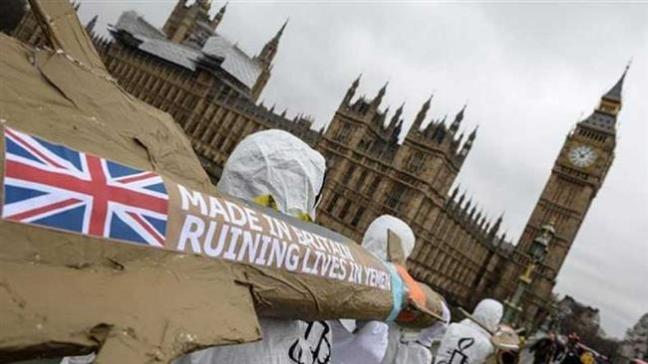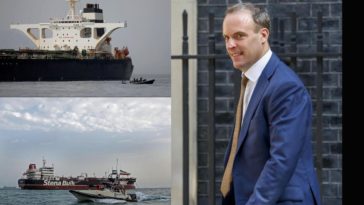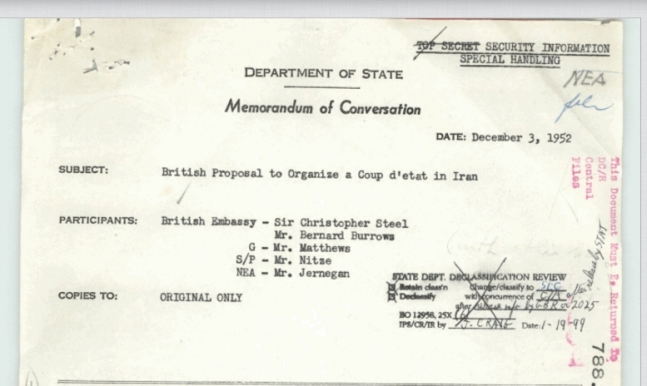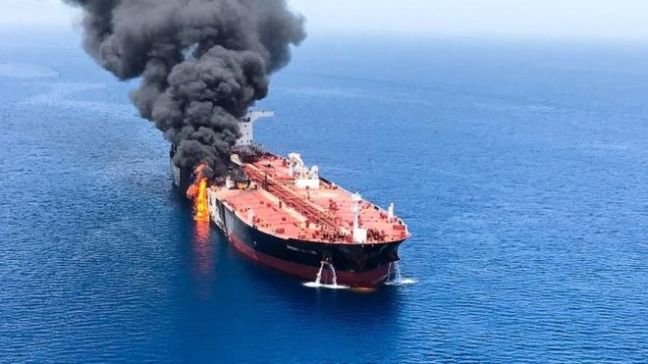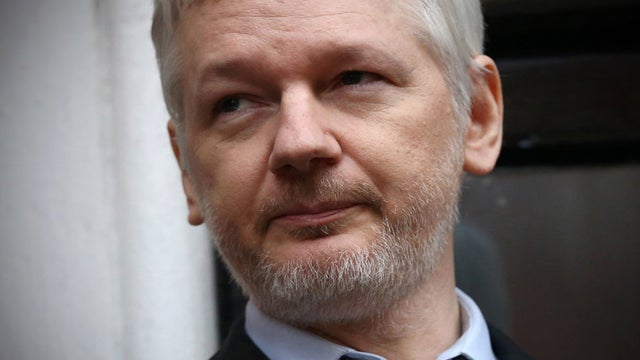Saudi Arabia is very much in the news these days. This morning the top World News story on the BBC is “Saudi crown prince warns of ‘Iran threat’ to global oil“. The story, however, also speaks about how Saudi Crown Prince Mohammed bin Salman is willing to “take some responsibility for” the murder of journalist Jamal Khashoggi just under a year ago – while still denying that he actually ordered it. Few will believe him. Tonight BBC’s Panorama programme will be look back at the murder, and especially the secret tapes that have come to light that point to official Saudi involvment in it. One of the most interesting aspects of the Khashoggi murder is the fact that after it occurred, the establishment media in the west, and politicians in the west, started to say to actually look at and criticise Saudi Arabia’s shocking war on Yemen, which seemed to disproportionately aim at causing civilian casualties – as this blog has been pointing out for a few years. (And it’s not just the Iran threat, the Khashoggi murder, and the ongoing bombing campaign – there’s plenty more.)
While it may not be obvious what the murder of Khashoggi has to do with the war against Yemen, there is a very close connection between the Saudi Crown Prince’s warnings about Iran and the war in Yemen.
This is because two weeks ago, on Saturday 14th September, there was an attack on the Saudi oil and gas processing stations in Abqaiq and Khurais. The attack had a brief, but serious impact on Saudi oil production. At the time, the BBC reported “The Houthis say they did it; the United States insists that it was Iran; the Iranians deny any involvement. ”
Whodunit?
Two weeks later, we are not much the wiser. One of the great mysteries is that despite the fact that Saudi Arabia has the third largest military budget in the world, they were not able to shoot down or even detect the incoming missiles. We still have no conclusive evidence of where the missiles were launched from – and despite claims that they might have come from Iraq or Iran, it still looks most likely that they actually came from Yemen.
Col Lawrence Wilkerson, former chief of staff to United States Secretary of State Colin Powell, in an interview last weekend said:
“I’ve had a conversation over the last 48 hours with lots of retired CIA, DIA and other intelligence officials as well as experts in the region and the consensus amongst us is no evidence has been seen at this point to dispute the Houthi claim that they carried out the attacks.“
After all, as the BBC reports
“Houthi rebels have repeatedly launched rockets, missiles and drones at populated areas in Saudi Arabia. They are in conflict with a Saudi-led coalition which backs a president who the rebels had forced to flee when the Yemeni conflict escalated in March 2015.
The war has killed nearly 10,000 people and pushed millions to the brink of starvation, the world’s worst man-made humanitarian disaster.“
The war in Yemen
The BBC is wrong on one detail here. The UN figure of 10,000 is regularly quoted, but is years out of date. The UN simply gave up on trying to to count, because it was so difficult to get detailed information out of Yemen.
Patrick Cockburn reported a year ago that
“One reason Saudi Arabia and its allies are able to avoid a public outcry over their intervention in the war in Yemen, is that the number of people killed in the fighting has been vastly understated. The figure is regularly reported as 10,000 dead in three-and-a-half years, a mysteriously low figure given the ferocity of the conflict. ”
Today, it generally reckoned that the total is closer to 100,000
Why the BBC keeps quoting the debunked 10,000 figure, without any qualification, tells us a lot about the BBC.
But the BBC does at least point out that it is the world’s worse man-made humanitarian disaster. In fact, the UN tells us that it isn’t just the “world’s worse man-made humanitarian disaster”. It’s the world’s worse humanitarian disaster. It is, however, entirely man-made.
The facts of the war in Yemen are pretty unpleasant, and are rarely repeated in the mainstream media because they are so embarrassing.
A little history
Yemen has had an ongoing civil war for a few years now. The latest phase began when a revolution in September 2014 saw the Houthi forces taking the capital, Sana’a. In January 2015, they stormed the presidential palace, leading to the resignation of President Abdrabbuh Mansur Hadi. The Houthis installed a Revolutionary Committee as the interim authority. However, the Houthi-led interim authority was rejected by other internal opposition groups and was not recognized internationally.
However, the US had been actively involved in the war in Yemen – launching attacks on al-Qaeda in the Arabian Peninsula (AQAP) for man years. Since the Houthis were also enemies of AQAP, America established ties with them to that they could co-operate. In January 2015, the Wall Street Journal reported:
White House and State Department officials confirmed to The Wall Street Journal the contacts with the Houthis, but stressed they were focused on promoting political stability in Yemen and safeguarding the security of Americans.
The Obama administration increasingly has sought to describe the Houthis as a potential partner of Washington’s ever since the militia gained control of San’a in January.
“U.S. officials said they also are seeking to harness the Houthis’ concurrent war on AQAP to weaken the terrorist organization’s grip on havens in Yemen’s west and south. . . .
Houthi commanders, in recent interviews conducted in Yemen, asserted that the U.S. began sharing intelligence on AQAP positions in November, using intermediaries, as the conflict in the country intensified. They specifically cited a Houthi campaign against AQAP positions in western Al Baitha province as one such operation.
A similar report appeared in Al Monitor
Hence, in a recent article in The American Conservative, Mark Perry wrote
“Key senior officers of the U.S. Special Operations Command viewed the Houthis as a robust counter to al-Qaeda’s strength in Yemen and even argued that America take steps to support them. “The Houthis were only nominally Iran’s surrogates,” a military officer told me at the time, “but they were also our quiet partners against al-Qaeda.”
However, things were to change sharply in March 2015 when Saudi Arabia (assisted by a group of other Arab countries) launched operation Decisive Storm.
“The Saudi-led intervention began well enough, with a relentless air campaign and naval blockade that initially eroded Houthi strength. And despite its skepticism, the U.S. military turned on a dime, providing the Saudi-led coalition with intelligence and logistical support and advising senior officers of the United Arab Emirates, which commanded most of the anti-Houthi ground forces. But over the course of the next three years, the intervention bogged down. The blockade triggered a famine that affected millions of Yemenis, the UAE’s mercenary force proved no match for the better-led Houthis, rebel militias began to lob scud missiles into Saudi Arabia’s oil fields, Riyadh’s allies began to peel away from the coalition (the UAE exited Yemen last July), the UAE-led mercenary army suffered a series of devastating defeats along the Saudi border, and, most crucially, the Houthis strengthened their ties with Tehran—all of which Pentagon officials had predicted back in 2015.”
Those Saudi bombings
And of course, there was the Saudi bombing, which has repeatedly hit civilian targets such as weddings, funerals, markets, and schools.
In June this year,
“The Armed Conflict Location Eventa & Data (ACLED) Project released its latest findings on fatalities caused by the war on Yemen, and now that they have completed their assessment of all data from the first year of the war they conclude that more than 90,000 have been killed over the course of the last four years.”
Airstrikes by the Saudi-led coalition accounted for 67% of the civilian casualties.
But bombing was not the only cause of death. Again, Daniel Larison in The American Conservative:
The ongoing conflict has further reduced the pace of development. The impacts of conflict in Yemen are devastating—with nearly a quarter of a million people killed directly by fighting and indirectly through lack of access to food, health services, and infrastructure. Of the dead, 60 per cent are children under the age of five. The long-term impacts of conflict are vast and place it among the most destructive conflicts since the end of the Cold War.
The Houthis hit back; the world responds
Not surprisingly, the Houthis have hit back – and launched several attacks against Saudi Arabia. None were particulary effective – until the one this month.
But strangely, most of the reporting in the west over the past fortnight has said very little about Yemen, and a lot about Iran – and how Iran is to blame:
Hence the BBC reported this week that
“British Prime Minister Boris Johnson, French President Emmanuel Macron and German Chancellor Angela Merkel issued their statement on the sidelines of the UN General Assembly in New York.
“It is clear to us that Iran bears responsibility for this attack. There is no other plausible explanation. We support ongoing investigations to establish further details,” they said.”
In other words, there is no evidence that Iran was involved in any way, but they think it was.
And these statements that blame Iran all use vague phrases “Iran bears responsibility” or “Iran is complicit in the attack” or “Iran is behind the attack”. The fact of the matter is that the Houthis are not Iranian proxies, and there is very little evidence that Iran provided much in the way of arms supplies to them.
Saudi Arabia has been enforcing a complete land and sea blockade of Yemen for over 4 years, so Iran hasn’t had any way of getting weapons in.
As Yemen expert, Michael Horton said in April 2015
‘These constant reports that the Houthis are working for the Iranians are
nonsense, . . . . The Houthis don’t need Iranian weapons. They have plenty
of their own. And they don’t require military training. They’ve been
fighting Al-Qaeda since at least 2012, and they’ve been winning. Why are we fighting a movement that’s fighting Al-Qaeda?’”
The elephant in the room
The long and the short of it all is that Iran may or may not have been in some way involved / complicit in / behind the attack on the Saudi oil installations. We just don’t know. But even if they were involved, it seems that their involvement was fairly minor.
However, there is a huge elephant in the room. An elephant that the mainstream media in the west has been remarkably silent about.
There is absolutely no question that the US and the UK have been massively involved in the slaughter of Yemeni civilians by Saudi Arabia. It’s right there in Wikipedia:
“The United States provided intelligence and logistical support, including aerial refueling and search-and-rescue for downed coalition pilots. It also accelerated the sale of weapons to coalition states. The US and Britain have deployed their military personnel in the command and control centre responsible for Saudi-led air strikes on Yemen, having access to lists of targets.”
There is no secret about any of this. Some of it even makes The Daily Mail, which earlier this year had an article entitled “Our secret dirty war: Five British Special Forces troops are wounded in Yemen while ‘advising’ Saudi Arabia on their deadly campaign that has brought death and famine to millions“.
In short, Iran may or may not have behind the attack on the Saudi oil installation, an attack that killed precisely nobody, and western politicians speak of it as a terrible crime. And yet the American and British governments are fully complicit in an ongoing campaign that has killed thousands of civilians in Yemen, and it is no big deal.
And what is more horrifying, almost nobody in public life in the UK and US is pointing this out. The media? Silent. Even opposition politicians are saying nothing. Instead, in America they keep going after Trump for things that, in the end of the day are pretty minor. And in the UK, all they seem concerned about is Boris Johnson proroguing Parliament, and using words like “surrender” and “humbug“.
In other words, giving MPs a few extra days away from Westminster is a far, far more serious crime than the mass slaughter of civilians in far off lands.
And that tells you all you need to know about the values of politicians (and the mainstream media) in Britain and America in the year 2019. Indeed, we could probably say it tells you all you need to know about contemporary American and British values.

